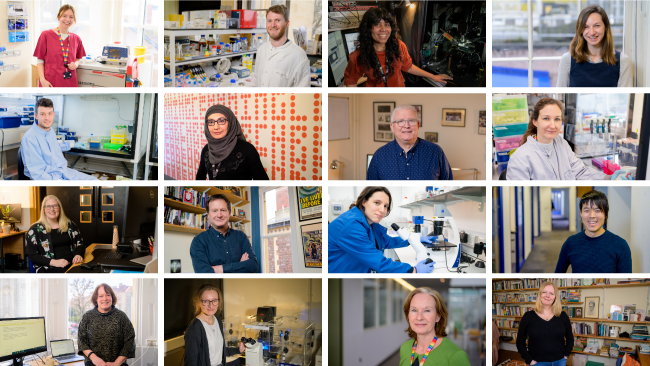Thinking about World Health Day this year I took a look at the WHO’s online materials. In places it’s sobering reading: 30% of the global population isn’t able to access essential health services, and around two billion people globally are living in contexts that the WHO describes as marked by ‘catastrophic or impoverished health spending.’
In the UK we’re fortunate: our National Health Service was established in 1948 and the foundational principles of the NHS as a comprehensive health service are still upheld today. These principles state that the NHS aims to meet the needs of everyone, to provide healthcare free at the point of delivery, and to do so regardless of users’ ability to pay.
At the Elizabeth Blackwell Institute we have the chance to work with researchers who hail from many disciplines, and our colleagues include individuals who are active researchers working clinically in the NHS. These colleagues include those who are starting out on their research careers as well as those with many years of deep experience in research that intersects with their clinical expertise. I’m always in awe of the research that everyone from all disciplines does, and I find that the research of clinical researchers to be diverse, exciting and of deep relevance to health and healthcare.
Recent projects by clinical colleagues have included work that has focused on stroke imaging data and AI; patient-orientated hospital discharge summaries to promote self-care in older patients; the development and treatment of mental health problems in young people; and research into the immune response to Group A Streptococcus. All have sought to find ways to improve health, and all have been grounded in a sense that research can and should lead to better health.
In recent years we’ve noticed that researchers working with the Elizabeth Blackwell Institute feel more able to explain how their work will address health of diverse and underserved people. I’d see this as part of a broader shift across research: as evidence of awareness that research only does good if it is good for everyone. It’s not just that there is a shift in attention to inclusion, there’s also deepening confidence as researchers feel more able to say how important inclusion is for them in their research.
On World Health Day, ‘health for all’ can remind us that our health research can be about all, by all, and for all. Inclusion matters and our research—of whatever style—is strongest when it’s inclusive.
Over the coming months we will be sharing photos, quotes, case studies and interviews of some of the health researchers we work with. We want to show what health research is, to celebrate researchers, and showcase the breadth and diversity of the research taking place at Bristol.

